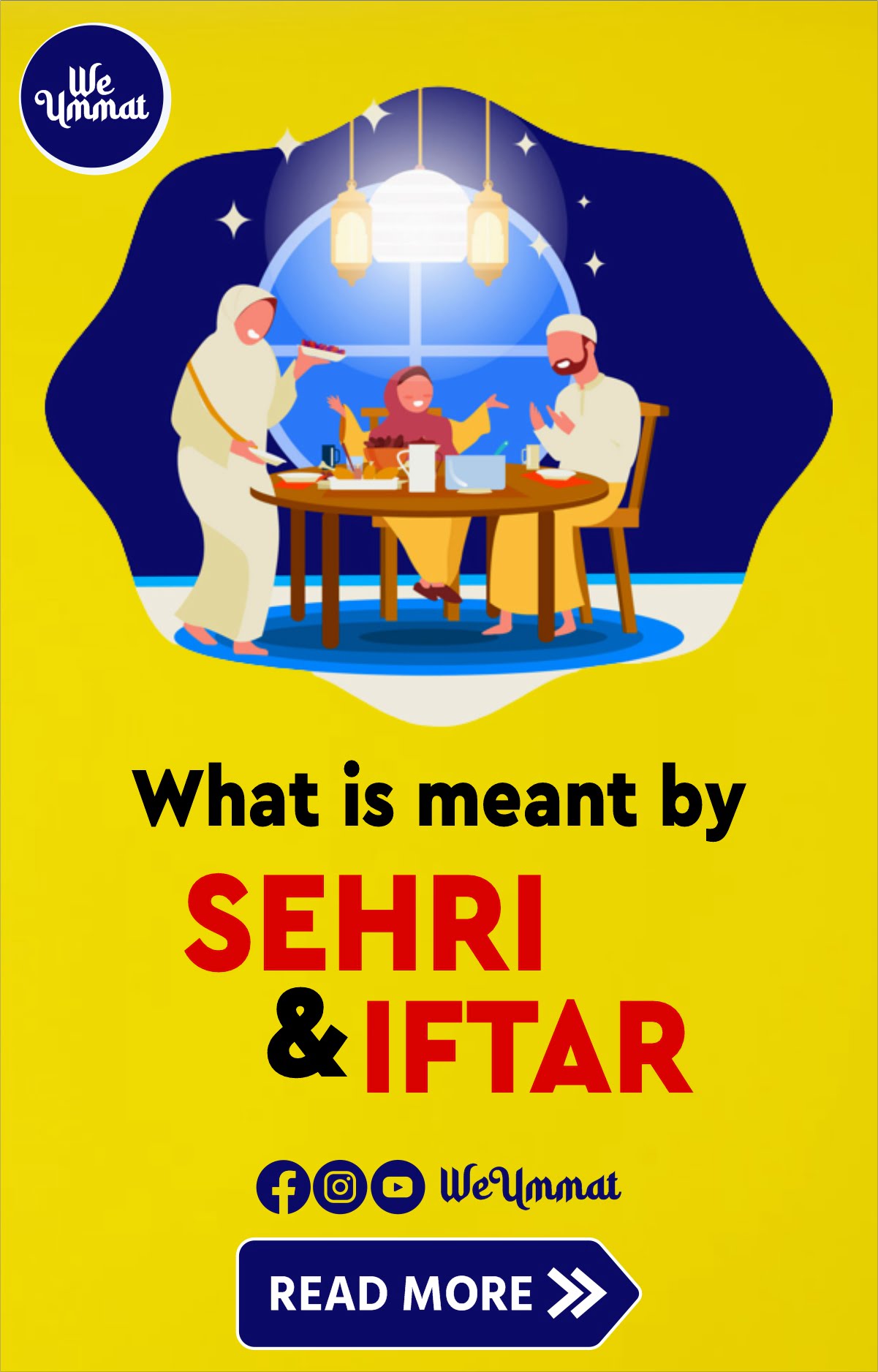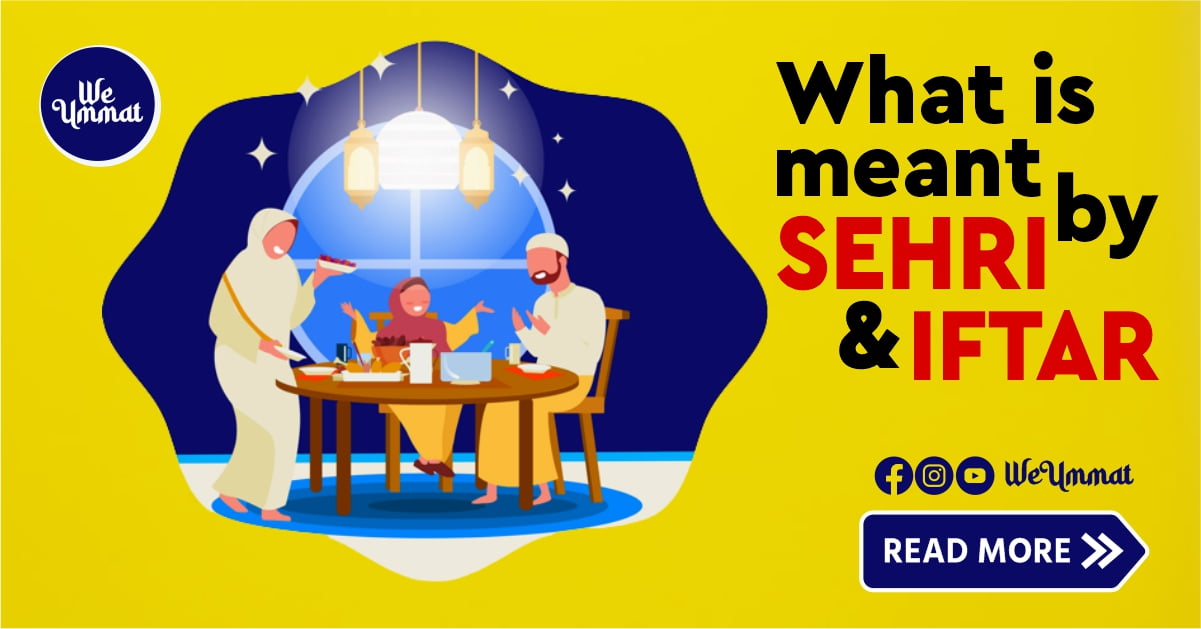What is meant by Sehri and Iftar
Sehri is a pre-dawn meal that is consumed before the start of the daily fast, while Iftar is the meal that is consumed at sunset to break the fast. These meals hold great significance in the Muslim faith, as they not only provide sustenance for the body but also serve as a time for spiritual reflection and community bonding. Sehri is considered an essential meal as it helps Muslims to sustain themselves during the day-long fast. Iftar, on the other hand, is a time for families and friends to come together and share their meals, as well as give thanks to Allah for the blessings received.

Sehri and Iftar are two important terms
Sehri and Iftar are two important terms that are often used during the Islamic holy month of Ramadan. Ramadan is a month-long period of fasting, prayer, and reflection for Muslims all over the world. During this time, Muslims fast from sunrise to sunset, abstaining from food, drink, and other physical needs. Sehri and Iftar are two key moments during the day that are observed during Ramadan.
Sehri
Sehri, also known as suhoor, is the pre-dawn meal that is eaten by Muslims who are fasting. This meal is eaten before the start of the fast and is usually consumed in the early hours of the morning. The time for Sehri varies according to the time of sunrise in different parts of the world. In some countries, it may be as early as 3 am, while in others, it may be closer to 5 am.
The purpose of Sehri is to provide sustenance and energy for the person who is fasting throughout the day. It is recommended that Sehri be a wholesome and nutritious meal, with a good balance of carbohydrates, proteins, and healthy fats. Common foods eaten during Sehri include dates, fruits, bread, eggs, yogurt, and other dairy products. It is also recommended that plenty of water be consumed during Sehri to help hydrate the body before the start of the fast.
Iftar
Iftar, on the other hand, is the evening meal that is eaten by Muslims to break their fast. This meal is consumed after sunset, at the end of the day’s fasting. The time for Iftar also varies according to the time of sunset in different parts of the world. In some countries, it may be as early as 6 pm, while in others, it may be closer to 8 pm.
The moment of Iftar is very significant in the Islamic tradition, as it marks the end of a long day of fasting and the beginning of a period of sustenance and reflection. Muslims traditionally break their fast with a few dates and a sip of water, in emulation of the Prophet Muhammad’s practice. This is followed by a full meal, which may include a variety of dishes, depending on cultural and regional traditions.
Iftar is often a communal affair, with families and friends coming together to share the meal. Many mosques and Islamic centers also offer free Iftar meals to the wider community during Ramadan. The practice of sharing food during Iftar is seen as a way of promoting unity, generosity, and hospitality within the Muslim community and beyond.
The significance of Sehri and Iftar
The significance of Sehri and Iftar goes beyond just the physical act of eating and drinking. These two moments are also imbued with spiritual and social significance for Muslims during Ramadan. Sehri is seen as a time of reflection and preparation, where Muslims focus on their intentions for the day ahead and seek spiritual nourishment through prayer and recitation of the Quran. Iftar, on the other hand, is a time of celebration and gratitude, where Muslims express their thanks for the blessings of the day and share their joy with others.
In addition to the physical and spiritual benefits of Sehri and Iftar, these two moments also have important health implications for Muslims who are fasting during Ramadan. By eating a nutritious meal during Sehri, Muslims are better equipped to cope with the physical demands of the fast, including maintaining stable blood sugar levels and staying hydrated. Similarly, by breaking their fast with a balanced and wholesome meal during Iftar, Muslims can ensure that their bodies receive the necessary nutrients and energy to sustain them throughout the rest of the day.
In conclusion, Sehri and Iftar are two important moments during the Islamic holy month of Ramadan. Sehri is the pre-dawn meal that provides sustenance and energy for Muslims who are fasting, while.
- What is Roza Kholne Ki dua? | Dua for Iftar with the reference of Quran and sahih Hdees
- What is Eid al fitr in Islam – Introduction, History and more | The gift of Roza (2023)
- What is Zakat in Islam? | The Islamic Tax: Concept, Purpose, and Importance
- What is Roza | Fasting in Islam | Reference : Quran and Sahih Hadees ( Ramadan )
Conclusion
In conclusion, Sehri and Iftar are two important Islamic practices observed during the holy month of Ramadan. Sehri refers to the pre-dawn meal that Muslims consume before the start of the daily fast, while Iftar is the meal that breaks the fast at sunset. Both Sehri and Iftar hold great significance in the Islamic tradition as they not only provide sustenance during the long hours of fasting, but also serve as opportunities for spiritual reflection and communal bonding. These practices are not only limited to fasting, but also emphasize the values of charity, self-discipline, and empathy towards others. As such, Sehri and Iftar are integral components of Ramadan, and hold a special place in the hearts of Muslims around the world.
FAQ
What is Sehri?
Sehri is the pre-dawn meal eaten by Muslims who observe fasting during the month of Ramadan. It is eaten before the Fajr prayer, which is the first prayer of the day.
What is Iftar?
Iftar is the meal eaten by Muslims to break their fast at sunset during the month of Ramadan. It is eaten after the Maghrib prayer, which is the fourth prayer of the day.
Can children and sick people fast during Ramadan?
Children who have not reached puberty are not required to fast during Ramadan, and sick people who are unable to fast due to their condition are also exempt. However, they can make up the missed fasts at a later time.
